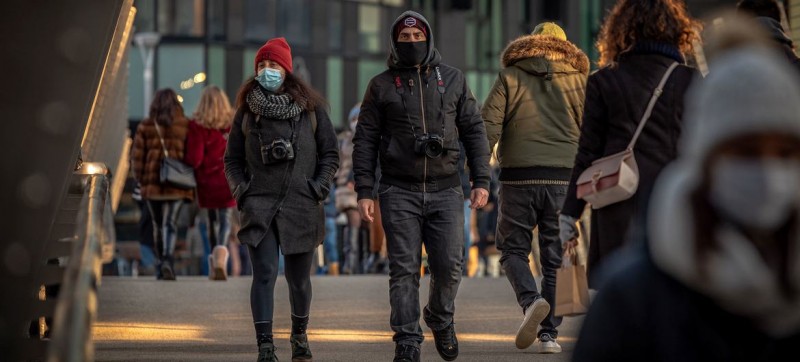Italy has confirmed its first case of the Omicron COVID-19 variant. The World Health Organization (WHO) is reminding Europeans to remain vigilant against COVID-19 spread as they round out the year with friends and family. In a message on Thursday, WHO Regional Director Hans Kluge urged Europeans to “be smart, be kind, be safe this holiday season.” The COVID-19 threat remains high across the continent, which was already the epicentre of the pandemic even before the emergence of the new Omicron variant. “My message to the people of Europe and central Asia is to exercise caution this holiday season. Use the many tools we have at our disposal. These stabilizers help us to manage the virus and keep people safe,” said Dr. Kluge. He urged people to get fully vaccinated as soon as possible. “Vaccines remain the best way to prevent severe disease and death, even with the arrival of the Omicron variant,” said Dr. Kluge. “If you are eligible for a third dose and it is available to you, take it.” Families and friends meeting up should keep these gatherings small, he added,while recommending that people should take a lateral flow/antigen or PCR test beforehand to ensure they are not infectious. “Follow other preventive measures, even if you are fully vaccinated,” Dr. Kluge advised. “Avoid crowded or confined places, wear a well-fitting mask, observe physical distancing of at least one metre, ventilate indoor spaces by opening windows and/or doors, and keep your hands clean.” In separate advice to governments and health authorities, WHO Europe called for “a balanced and risk-based approach” to COVID-19 prevention measures this winter season. As people socialize more indoors, or travel to visit loved ones, the opportunities for further virus transmission are significant. WHO Europe said with the right mix of measures, countries can find a balance between keeping coronavirus transmission down and societies and economies open. Government response should be centred around preventing severe COVID-19 disease and stabilizing transmission. Measures include continuing to vaccinate, targeting those most at risk, and prioritizing eligible groups for booster shots. Governments should also strengthen public health actions such as testing, contact tracing and regulations for mass gatherings. Regarding international travel, WHO Europe said while countries may apply appropriate measures to reduce virus transmission, particularly in response to new variants, blanket travel bans will not prevent their international spread. Additionally, decisions on mass gatherings should “rely on a risk-based approach”, and WHO has produced a policy brief and risk assessment tool to support authorities in this regard. WHO Europe recently launched an online mechanism to help governments decide on the type and level of measures to implement in their territories. The COVID-19 Public Health and Social Measures (PHSM) Calibration Tool brings together the crucial information required to make an assessment, and then provides a situational report with recommendations on appropriate measures. The (PHSM) Calibration Tool will allow governments and local authorities to quickly adjust measures as needed, which in turn should help reduce virus transmission, among other benefits.Use the tools
Finding the right balance
New assessment tool
The World Organization for Development has been endowed with consultative status with the UN ECOSOC since 2014. The World Organization for Development, which has consultative status wich the UN ECOSOC, develops and implements Global Initiatives to achieve the UN Sustainable Development Goals.



